Born in Abbottabad in the Khyber Pakhtunkhwa province (then North West Frontier Province) of Pakistan, Humaira Khan finished school there and studied privately for her FSc degree before going to Oxford to read for a BA in PPE as the first female Rhodes Scholar from Pakistan. After Oxford, she completed a master’s degree in international relations at the Johns Hopkins University campus in Bologna, Italy, before moving to Johns Hopkins in the US to complete her PhD in environmental sciences. Humaira then returned to Pakistan where she worked for London-based nonprofit LEAD and for WWF-Pakistan whilst also opening and running her own primary school in the city of Gilgit. She went on to join COMSATS University Islamabad, where she taught graduate and undergraduate courses on environmental issues in developing countries. She continues to publish and carry out research on environmental and developmental issues in the Gilgit-Baltistan region of Pakistan. This narrative is excerpted from an interview with the Rhodes Trust on 18 November 2024.
Humaira Khan
Pakistan & Somerville 1982
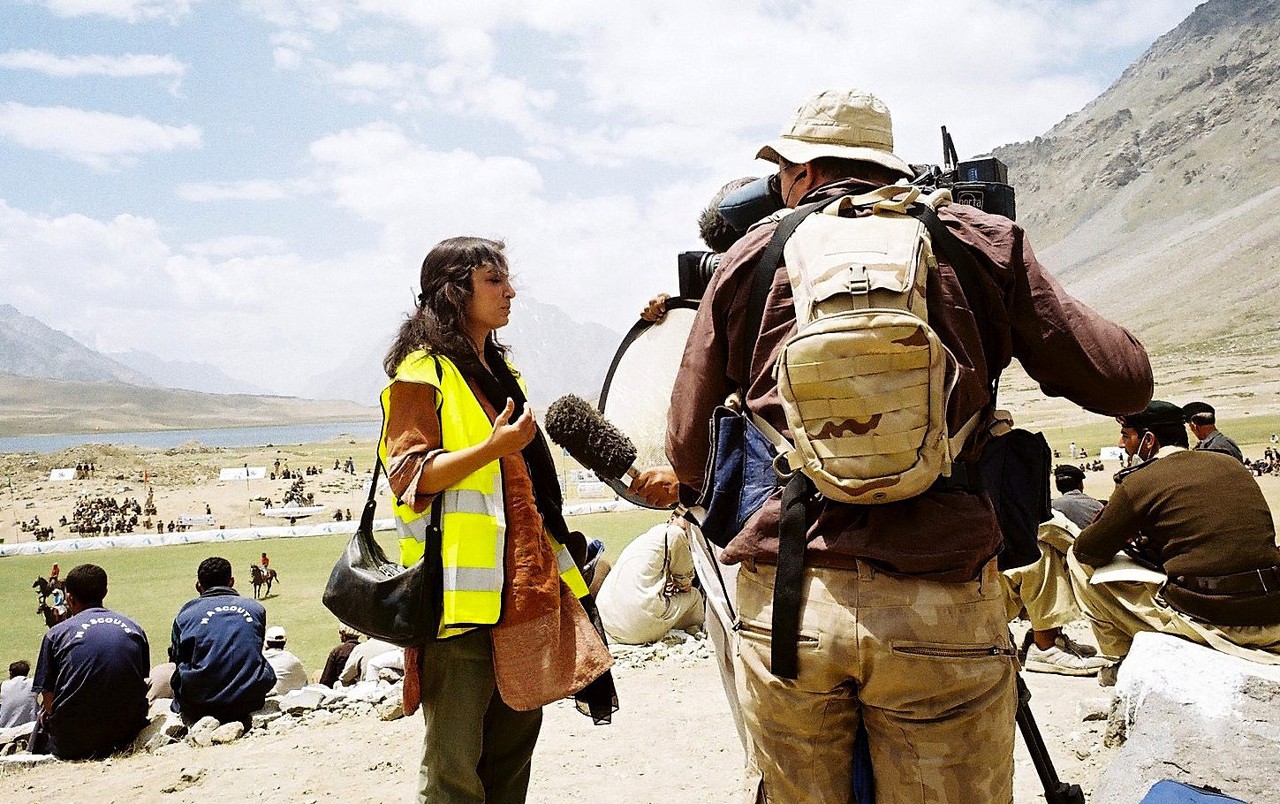
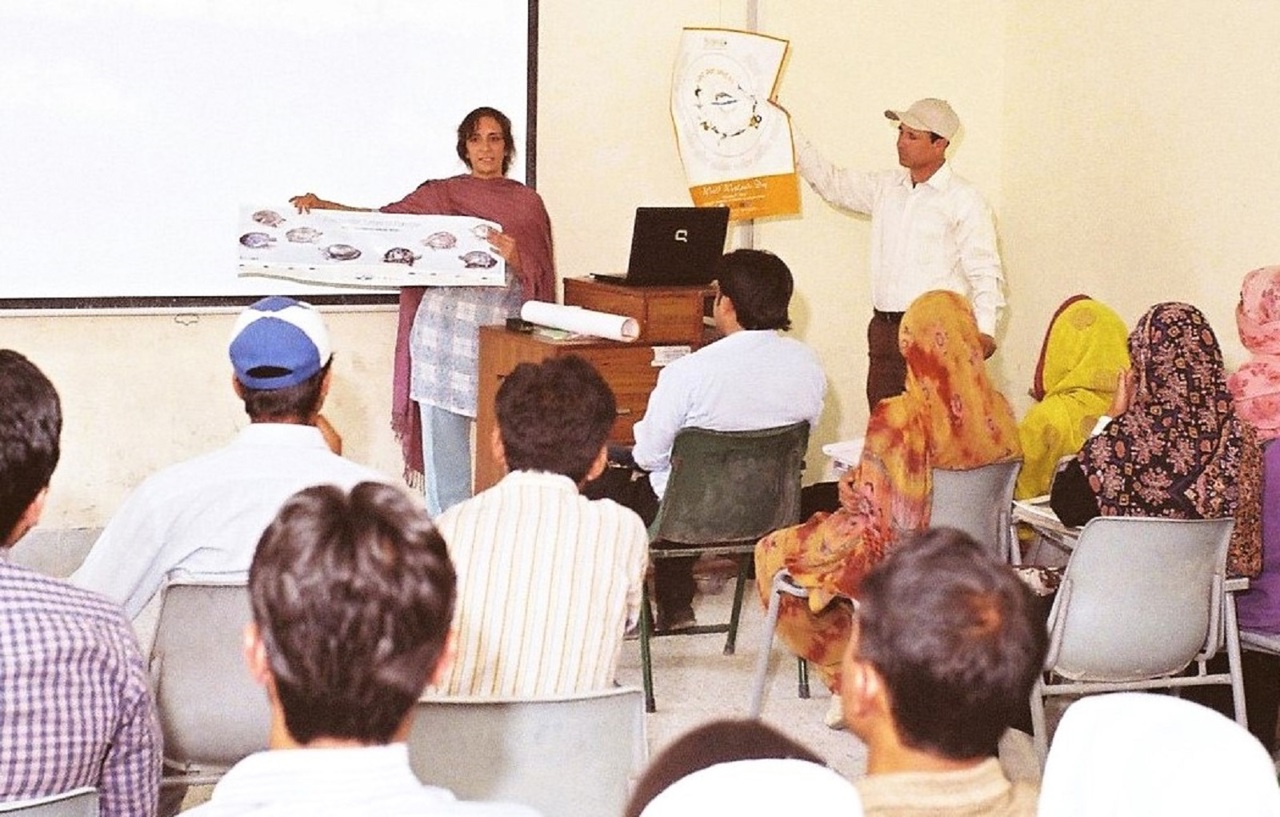
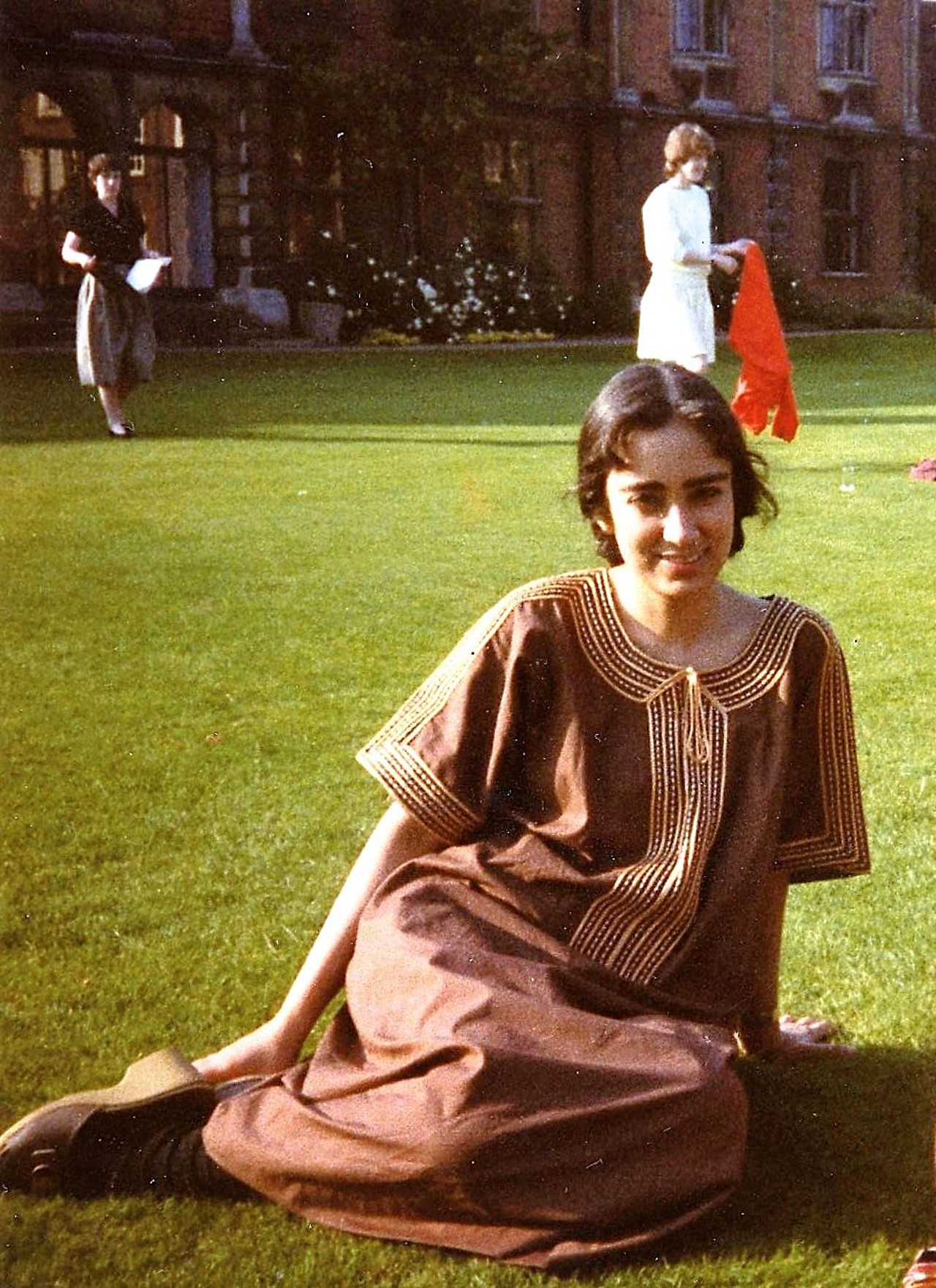
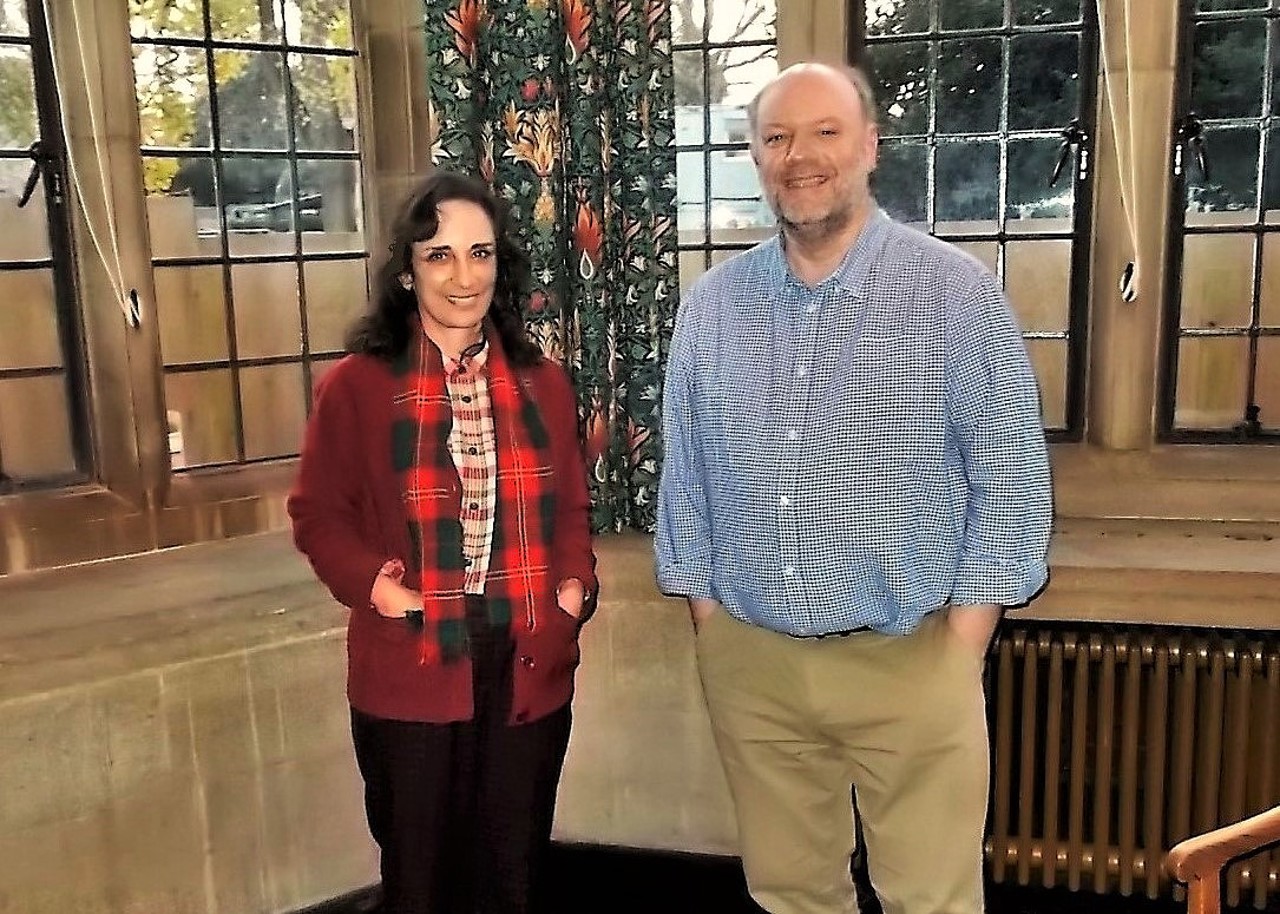
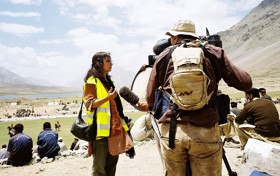
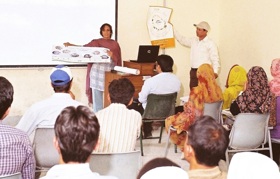
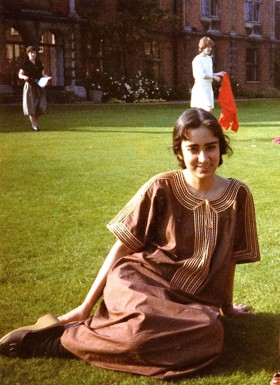
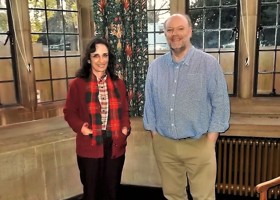
‘I yearned to travel around the world’
I was born in Abbottabad, one of the most beautiful cities in Pakistan. My mother’s and father’s families both originally came from northern India but their families moved to Pakistan a number of years after partition. My mother was a lecturer in English literature in the Government Degree College for Women, Abbottabad and spent her entire career there, eventually becoming the college principal. My father was a medical doctor and for much of my childhood, he worked in West Africa. We lived with him there for a time but came back when it became clear that my two siblings and I – all girls, I am the eldest – were not getting the education we needed. So, I grew up largely with my mother, my siblings and Khala (which means ‘Aunt’) who was my mother’s colleague and her adopted sister. Living in an all-female household definitely influenced my life, in that I never experienced undue male dominance in my childhood and subsequently, I have not put up with it in my later life.
I was very lucky that I attended the same school throughout my childhood. I loved going there. My biggest hobby was reading books, especially on science, history and exotic places. I yearned to travel around the world and was always looking at atlases and maps, pointing out various far-away places. When my father visited us he taught me technical photography and film editing. When I got to be an undergraduate, I did not actually attend college. Instead I decided to do private preparation for what was usually a two-year course after high school, because I wanted to do it in one year. So, I got tutored in physics, mathematics and chemistry by teachers from my former school and did lab work at my mother’s college. It was a very anxious wait for the results, but when they were announced, I found that I had obtained first position in the entire North-West Frontier Province of Pakistan. I do believe that it was my mother and Khala’s encouragement and God’s help that were responsible for this outcome.
On applying for the Rhodes Scholarship
I had heard of the Rhodes Scholarship, of course, and its incredible prestige, but believed that it was beyond my grasp. I never thought I could really get it. But what is interesting is that my mother had herself wanted to be a Rhodes Scholars although, of course, in her youth the Scholarship was not open to women. She only told me about that later on, when the time came for me to apply. So, she very actively encouraged me to apply for it. Her enthusiasm and confidence rubbed off on me, and I applied.
I remember that we were called for interview to Lahore. All the other candidates were from the big cities of Pakistan, and one young man had even come from Harvard. So, of course, I said to myself, ‘Okay, this is as far as I get, to the interview level.’ After the interview was over, I actually asked permission to leave, because I didn’t want to sit there and wait for the result, but the chair of the committee smiled and said, ‘No, can you please just wait?’ When they announced my name, it didn’t sink in at all. I stood up like an automaton and shook hands with people, but my mind was in a dreamlike state. That lasted for a few days, and then it began to dawn on me that I was actually going to Oxford as Pakistan’s first female Rhodes Scholar, and I was ecstatic!
I had an idea about what I wanted to do with my life. First of all, I knew what I did not want to do. I did not want to be stuck in a job that I did not like, no matter how well paid. People suggested I should go into medicine, or law, or the foreign service, and I just said ‘No.’ I wanted to be in a job where I could do hands-on work in the field, to work at the grassroots level and also to teach, as well as travel.”
‘The academic experience felt very different’
I had always known that I wanted to study abroad, so the Rhodes Scholarship was the perfect thing that came along in my life. My time as a Scholar in Oxford was actually very, very good. I felt I had two anchors and sources of support: my college and Rhodes House. That made all the difference to my sense of security. And thanks to the generous financial support from the Rhodes Trust, I did not have to worry about money too much, and I was able to fulfil my childhood desire to see new countries. I travelled throughout the UK and Europe, and the Rhodes Scholarship made that possible for me.
In the beginning, the academic experience felt very different from what I had been used to in Pakistan. In Oxford, we had the tutorial system and there was very little supervision by academic staff. We were supposed to study on our own. I must admit it was tough in the beginning, and it took me about two months to become accustomed to it, and that was largely because of my excellent and helpful tutors at Somerville who understood my background and helped me adjust to the new system.
I was also a little homesick at the beginning too, but that didn’t last, and I got very involved, both in my tutorials and in some of Oxford’s mind-boggling number of extracurricular activities. I became friendly with a lot of people from countries all over the world, and that was so exciting for me. Oxford is a wonderfully cosmopolitan environment. While I was there, I also had the honour of meeting the Queen and Prince Philip at Rhodes House for the 80th anniversary of the Rhodes Scholarship. We were encouraged to wear traditional dress, which fortunately I had with me, and we were all trained in how to be presented. That will always stand out in my memory of my Oxford days.
For me, the Rhodes Scholarship became a platform, a springboard, from where I could start to explore the world even further. I did return to Pakistan, but only after I had experienced the outside world and felt that I had something to give back to the people of the country of my birth. From Oxford, I attended the Bologna campus of Johns Hopkins University for a year and then obtained my PhD at the main Johns Hopkins campus in Maryland, USA. Later I worked as Assistant Research Scientist at the University of Maryland for two years. But after that, I decided to return to Pakistan, and there, my career became a combination of environmental project management and teaching. I worked with the World Wide Fund for Nature in Gilgit-Baltistan, in the extreme north of Pakistan. Simultaneously, I established my own primary school there. At first, I was worried about moving to what I thought of as a remote place, but I came to love the people and the area. In fact, when the very first Chief Minister of Gilgit-Baltistan was being appointed by the government of Pakistan, a number of Gilgit citizens put my name forward for the position but I politely declined since I wanted to stay out of politics.
After nine years in Gilgit-Baltistan, I joined COMSATS University Islamabad, doing teaching and research in the department of environment and development. I would say that teaching, at both primary school and university level, has given me more satisfaction and joy than anything else. It might seem odd to some that I’m not interested in acquiring fancy titles in big foreign organisations or universities, but I never wanted that. Today, my motivation is to continue working in developing countries, especially with communities and younger people in the fields of education and the stewardship of natural resources.
‘You should go forward, and explore other cultures’
I’m not sure that I can say a whole lot to the Scholars-in-Residence, but the one thing I would mention is that Oxford provides the best opportunity to meet people from all over the world. You have to meet people face-to-face in order to really get to know them and their cultures. Doing so contributes to lessening prejudices and to enhancing the vital understanding that people from everywhere are so very similar in nature. That nature is just overlain with some cultural differences, and those differences are actually what make this world so colourful and interesting. So, meet people and get out of your comfort zone! Explore other cultures and see what the rest of the world is about. I’ve learned so much from doing that.
